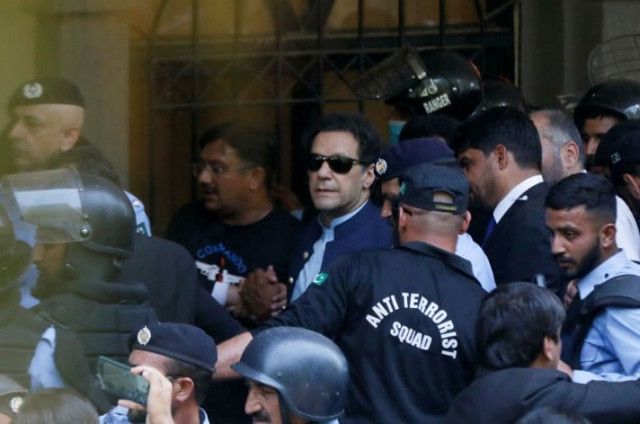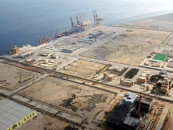Imran remanded in judicial custody until 13th
Court rejects post-arrest bail plea, PTI chief's legal team challenges hearing in Attock jail

A special court recently established to hear cases filed under the Official Secrets Act, 1923, has remanded Imran Khan in judicial custody until September 13 in a case related to the illegal possession and disclosure of a classified diplomatic cipher during the final stages of his term as prime minister.
The court, which conducted a hearing on Wednesday within Punjab’s Attock Jail, where Imran Khan has been held since August 5, also issued notices regarding his post-arrest bail application.
A day earlier, the Islamabad High Court (IHC) had suspended the three-year sentence imposed on PTI Chairman Imran Khan in the Toshakhana case. On Wednesday, the high court sent his release order to Attock Jail after the former PM submitted a surety bond of Rs100,000.
However, the suspension of the sentence in the gifts case did not immediately translate into Imran’s release, as the Federal Investigation Agency (FIA) announced the arrest of the former PM in the diplomatic cipher case on Tuesday, reportedly right after the IHC order.
On Wednesday, Special Court Judge Abul Hasnat Muhammad Zulqarnain conducted a hearing of the cipher case within Attock Jail, following a notification from the Ministry of Law. Imran Khan, present in the courtroom, was represented by advocates Salman Safdar, Ahmed Musarrat, and Intizar Panjutha.
The legal team for the PTI chief requested bail for their client, challenged the legality of the Ministry of Law's notification for conducting his trial within the jail, and requested that the accused's trial be held in an open court.
They argued that Imran Khan could not be charged under the Official Secrets Act, 1923, contending that the case was based on fabricated charges and was a politically motivated vendetta.
The judge issued notices on Imran's bail request and asked the prosecution to present evidence against the accused on September 2.
Meanwhile, the PTI chief challenged the Ministry of Law’s notification to hold his trial within the jail at the IHC.
He also challenged the ministry’s decision to appoint Judge Abul Hasnat Muhammad Zulqarnain of Islamabad Anti-Terrorism Court-1 (ATC) as the judge of a special court dedicated to hearing cases filed under the Official Secret Act, 1923.
The PTI chairman argued that the judge does not meet the essential criteria to hear such cases.
On March 27, 2022, before facing a vote of no-confidence that led to his removal, former premier Imran had taken out a piece of paper – allegedly a diplomatic cipher – from his pocket and displayed it at a public gathering in Islamabad, claiming it was evidence of an "international conspiracy" to topple his government.
The FIA initiated its probe into the so-called 'cypher-gate' on July 19 after the PML-N-led coalition government announced an official inquiry against the former PM and his close associates for violating the Official Secrets Act, 1923, by making a classified document public.
PTI Vice Chairman Shah Mahmood Qureshi, who had served as the country’s foreign minister during the PTI’s rule, was arrested by the FIA on August 19.
An FIA Counter Terrorism Wing team interrogated Imran Khan on August 26 inside Attock Jail for over an hour in connection with the case. The agency announced Imran's arrest on August 29.
Holding Imran’s trial in jail is unlawful: PTI
The PTI said on Wednesday it intended to mount a legal challenge to the trial of Imran Khan in cipher case inside the Attock Jail and condemned the violation of the former PM’s fundamental rights.
Following deliberations among senior party members, the PTI core committee termed Imran’s in-prison trial “unlawful”. In addition, the former ruling party expressed its condemnation of the judicial remand of the party chief.
The committee underscored that the trial was a response to Imran’s “unwavering commitment” to true national sovereignty and his “resolute refusal” to succumb to external pressures, particularly saying “absolutely not” to the United States.



















COMMENTS
Comments are moderated and generally will be posted if they are on-topic and not abusive.
For more information, please see our Comments FAQ